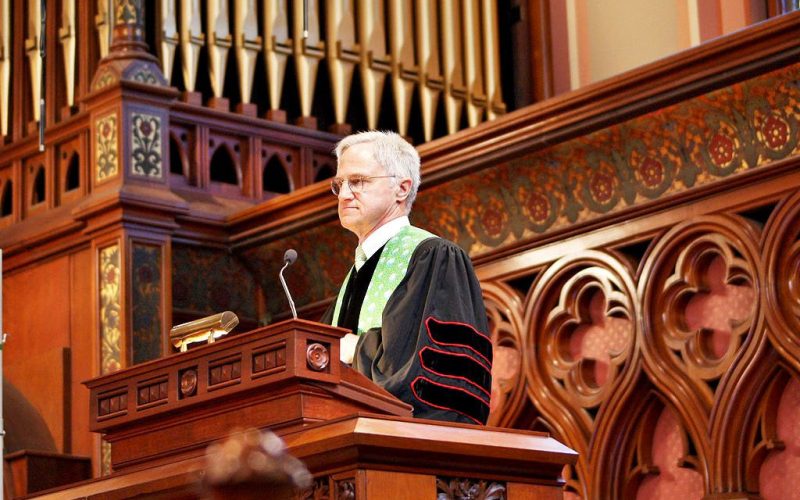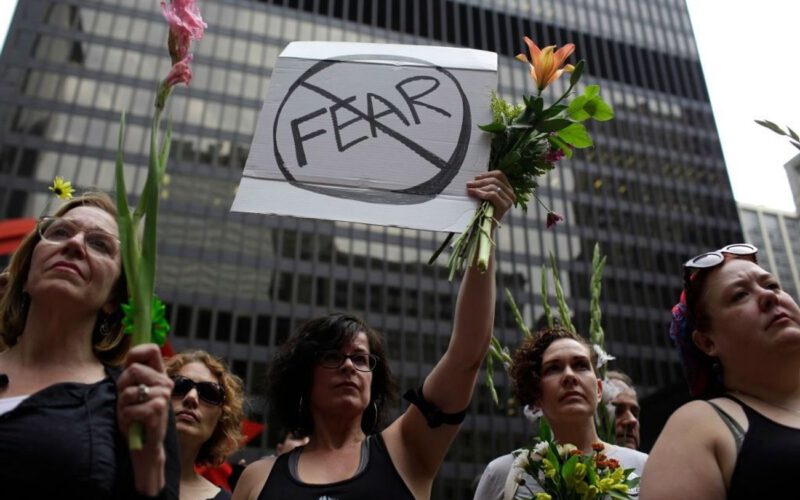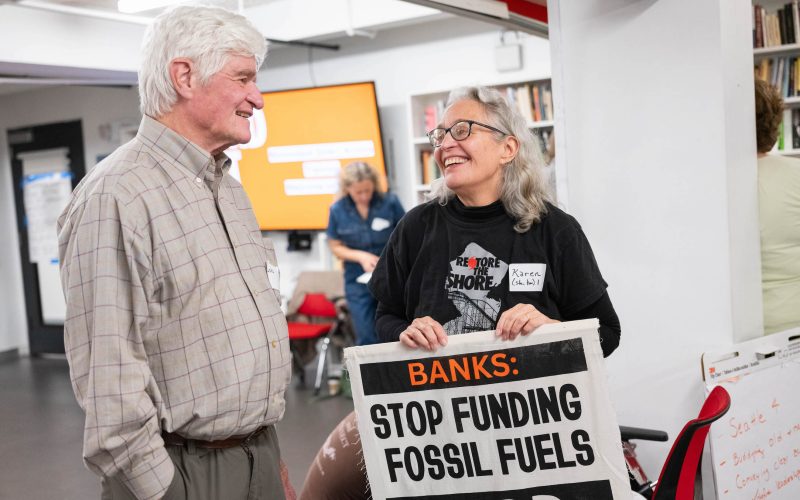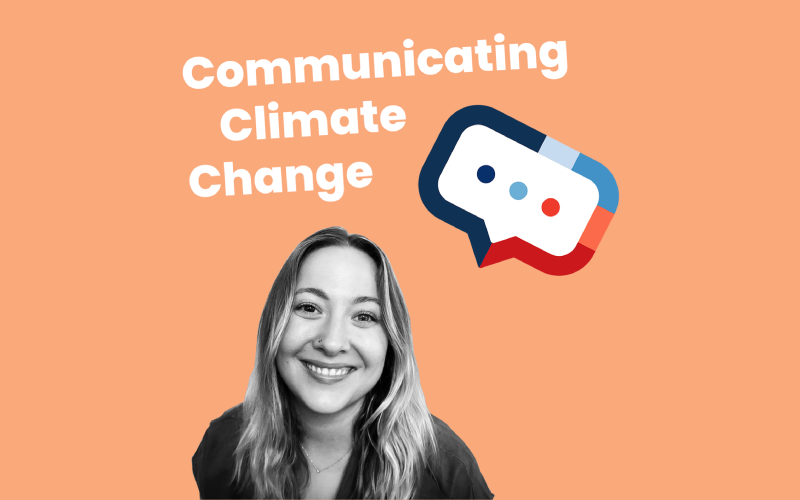Eunice Lehmacher, social worker and Third Act national volunteer, writes about her experience running for office on a climate platform, and why it's important to do so no matter what the outcome.
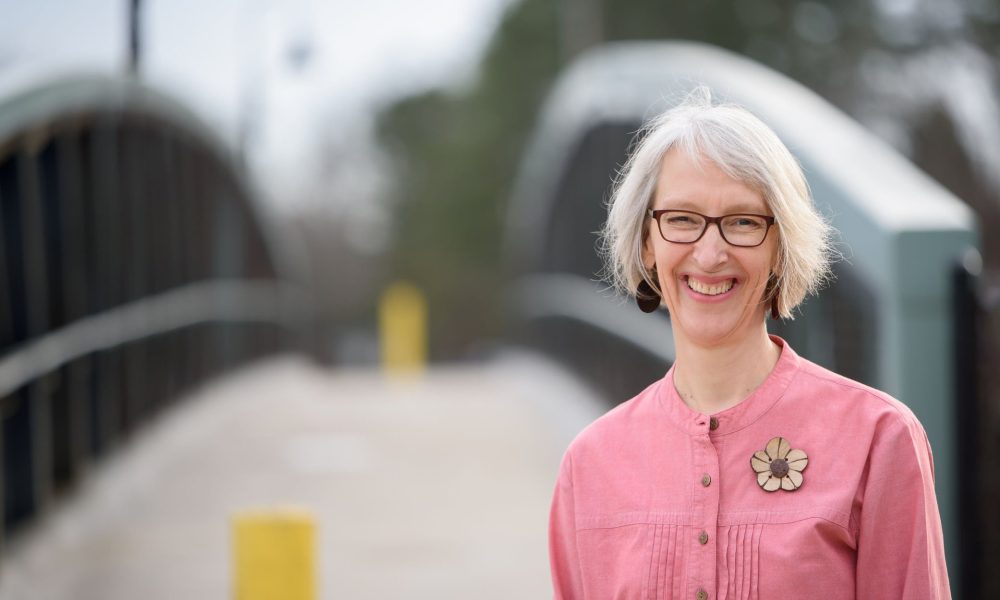
What we wanted: more bike lanes, electric buses, cheaper local produce, education about sustainability in K-12 schools, renewable energy, and more. Instead, we achieved a tour of sustainable homes and businesses and a list of local field trips for my son’s grade school.
I had had enough after hours of meetings and talking that didn’t lead to significant change. I wanted different legislators.
That’s why I ran for city council and, later, the South Carolina State House. My efforts in local organizations, such as Transition US, Sierra Club, 350.org, Third Act, and Citizens Climate Lobby, to make humans more responsive to climate change had made a difference, but we needed more.
I ran as a Democrat in a state not known for embracing change related to climate change. And I lost. Twice. Did it make a difference? It certainly did. By entering the political race, I could make climate change a subject of conversation.
And because I won 40% of the vote in the most conservative county in South Carolina, my voice made a difference when speaking to my conservative Republican representatives who knew I spoke for a significant percentage of their voters.
I live in Clemson, SC, a university town where many residents live because they are scientists, engineers, and other academically focused people who understand that humans need to radically change to protect the earth. My husband is a physics professor, and I work as a social worker and psychotherapist. In our 22 years of being voters in Clemson, most races only had Republican candidates, and not a single candidate on my ballot wanted to address climate change.
I’m glad my efforts volunteering in green organizations sent children on green field trips and helped neighbors realize sustainable homes existed nearby. But I’m even more grateful that when I ran for office in 2016, current conservative legislators learned they had many voters who cared about green issues. Moreover, the hours spent on my campaigns gave me valuable experience. I have since used to help other female green candidates, one of whom now serves as a county council member in Pickens County.
Evangelicals, business owners, and gun lobbies have worked together for many years to elect legislators who support their causes. Third Actors must also find people to run for office to represent our interests. Third Actors are beginning to understand that policy change comes quicker when we change our legislators.
So, what can you do to elect more green candidates?
- Consider running for office next year or another year after that.
- Ask people you know to run for office and ask again. Research suggests that before a woman will consider running for office, she needs to be asked several times.
- Donate early in their campaign if you know a green candidate running. Even if you can only give $5. Besides the funds, a donation to your candidate will show an increase in supporters, a critical ask of larger organizations (i.e., the Democratic Party), some of which decide who to fund based on number of donors.
- Help green candidates get campaign training from organizations like Emerge, the Democratic Party, or Women In Leadership. If the training costs money, offer to pay a portion.
- Connect the candidate to former candidates who previously ran for office or to the local green organizations. Invite them to your Third Act group to discuss their campaign and recruit volunteers.
- Assist with fundraising by donating yourself, asking your friends to donate, and suggesting that they ask their local Democratic Party, Third Act group, Sierra Club, or other green group to provide a donation.
- Offer in-kind donations to candidates such as offering to post for them to a social media account, providing graphic design, copy editing, canvassing, phone banking, babysitting, writing, delivering yard signs or door knob hangers, volunteer management, video filming or editing, canvassing, phone banking or text banking.
- If you’re known for being informed about green issues, be sure to tell your friends that you know which candidates support green strategies that you endorse. Encourage friends to tell their friends to ask you about the upcoming race for your opinions.
- Attend candidate forums or debates and submit questions about the environment for candidates to answer. Keep questions short and focused on public interest issues (e.g., what policies do you recommend to lower utility prices?). Consider providing green candidates with the questions you will submit in advance so they are prepared with relevant data and information.
- Engage in relational voting: encourage your friends to register and to vote, have them tell their friends who is a green candidate and why, and go to your neighbors and tell them about the candidate.
“The climate emergency eliminates time for politeness.”
Increasingly, voters live in states where they must choose between either two liberal or two conservative candidates. Where I live, practically speaking, the election for state and county offices occurs in June during the Republican primary (South Carolina Congress is 69% Republican) since most districts are gerrymandered to favor Republicans. In bluer states, voters need to differentiate between two candidates who both support action to help the environment.
We have all been taught not to talk about politics (or sex or religion, for that matter) in social settings. But the climate emergency eliminates time for politeness. In a country where single-issue voters were able to overturn Roe vs. Wade, Third Actors must utilize the ballot box as a way to change policies. Like pro-life voters pre-2021, we must encourage our friends and family to vote for the earth by talking about the candidates’ stances on environmental questions (and not just some of the time, from now until November 5!).
Although most of our attention in presidential year elections is on national races, a substantial number of significant environmental decisions are made by county and city councils. Inform yourself about local candidates and their positions on green issues (i.e., do they support buying green city/county vehicles, solar installations on government buildings and schools, building and waste regulations, incentives for green building and local farming, etc.).
County and city council people are more likely than national candidates to answer their phone when you call them, so contact them or even set up a meeting to discuss green issues that affect your area. Or invite them to your local Third Act chapter meeting. Or better still, host a public forum for voters on green issues, which allows candidates to talk directly to voters. Prepare questions ahead of the forum to help votes differentiate between candidates (e.g., How will you help businesses implement more sustainable practices?)
Third Act volunteers have been correctly focused on getting their legislators to change policies to help the earth. But we MUST also focus on changing our legislators. More sustainably focused legislators can have long-term effects. I now spend less time talking to conservative legislators and more time asking people to run or helping good candidates with their campaigns.
I’m running again for South Carolina State House on November 5th.
Run for something. Or help someone run for something. Even if you lose, you will emerge a winner.

Eunice Lehmacher
Eunice Lehmacher was born in Lexington, Missouri. She grew up in Wilson, North Carolina, and Knoxville, Tennessee. Lehmacher earned her bachelor’s degree from Concordia University in 1985 and her master’s degree from the Catholic University of America in Washington, D.C. in 1996.
Her career experience includes working as a medical social worker at Oconee Memorial Hospital and as a counselor, owner of a private counseling practice, high school math and science teacher, library associate, and church educator. She has been affiliated with the South Carolina Society for Clinical Social Workers and the Clinical Social Work Association.
